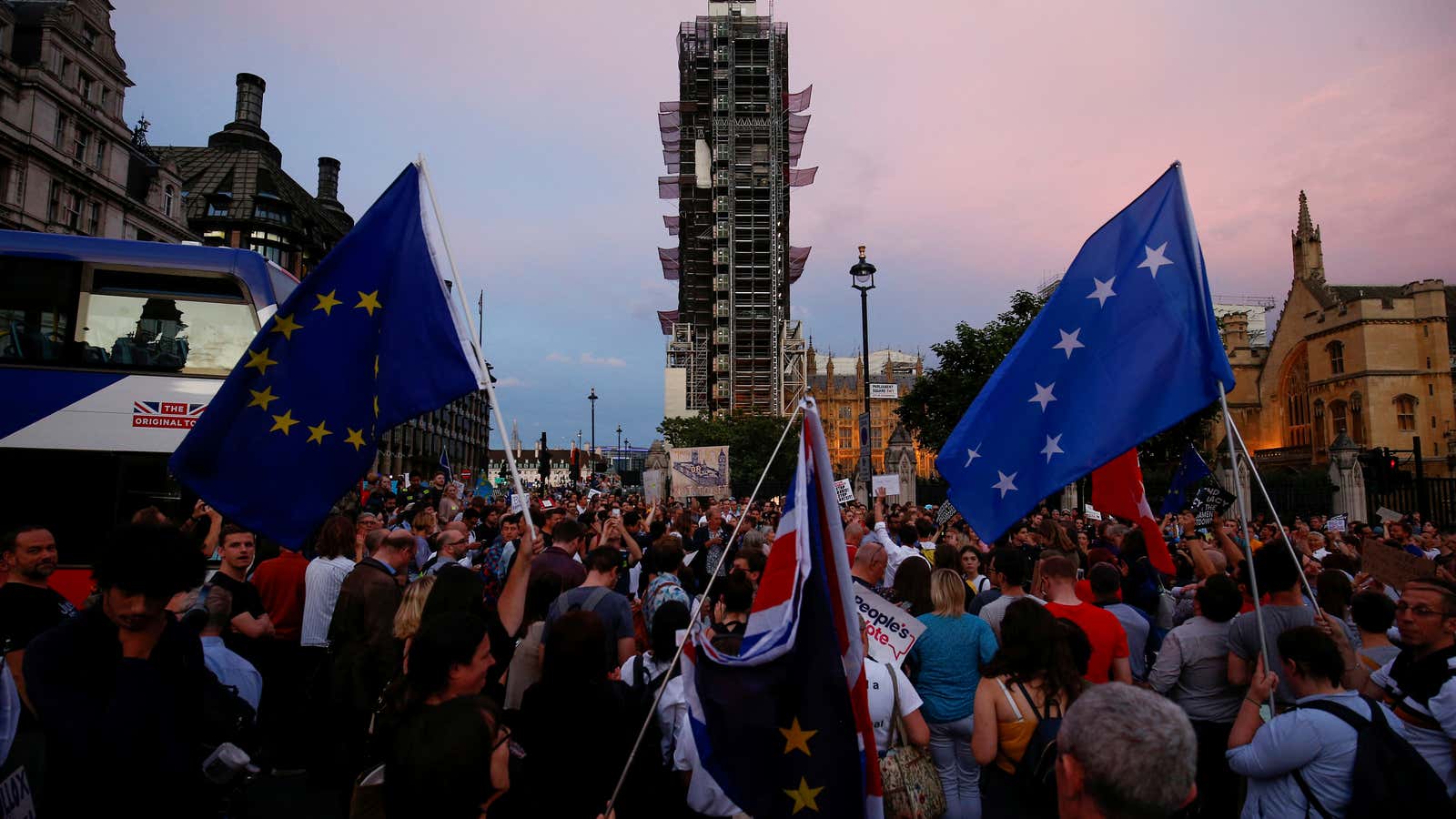Hordes of Britons have taken to the streets to protest prime minister Boris Johnson’s decision to suspend Parliament. A heavyweight Conservative MP, on the other hand, has decided a “humble address” to the Queen is the way to go.
Former attorney general Dominic Grieve said he and colleagues plan to invoke the ancient procedure to register their “deep concern” over Johnson’s move, which would cut down the time MPs have to legislate against a no-deal Brexit. The opposition can use “humble addresses,” a legally binding tool that has rarely been employed in the past 200 years, to force governments to issue documents, or to deliver weighty messages to the Queen.
The Queen earlier today approved Johnson’s request to shut down, or “prorogue,” Parliament for five weeks, meaning it will reopen on Oct. 14—just over two weeks before the deadline for Britain to leave the European Union. The House of Commons normally breaks for around three weeks in September and October to hold party conferences, but many MPs had been moving to cancel the annual break in what they see as a time of national crisis.
In 2017, the opposition Labour Party successfully used a “humble address” to compel the government to publish research it had been withholding on the impact of Brexit. Grieve, nonetheless, wasn’t convinced his efforts would work.
“I think the decision to prorogue for five weeks is constitutionally wrong and frankly outrageous. I don’t think Parliament can stop prorogation although there may be something that Parliament can do to register its deep concern,” he told the Guardian. “It’s possible to do a humble address to the Queen to say that we should not prorogue. Boris Johnson must assume he is going to escape Parliament and I don’t think he is.”
There are several separate moves afoot to stop Johnson, who was elected to the leadership by 92,000 Conservative members, from dissolving Parliament or forcing a no-deal Brexit without MPs’ consent:
- Commons speaker John Bercow, who called the ploy a “constitutional outrage,” is expected to give the opposition time to put forward legislation barring a no-deal departure.
- Johnson is facing legal challenges in both England and Scotland.
- A petition to stop prorogation quickly reached more than 850,000 signatures. Parliament is now obliged to debate it.
- One MP said he would have to be physically removed from the chamber for the Commons to be shut.
